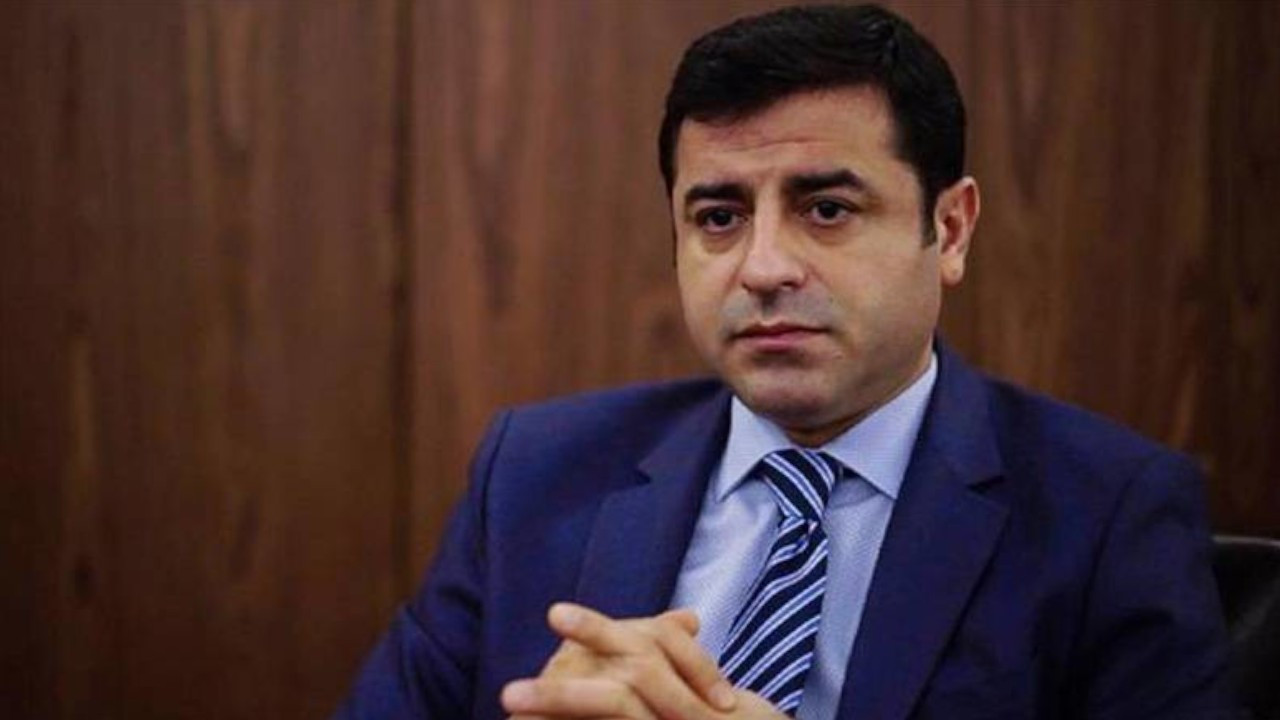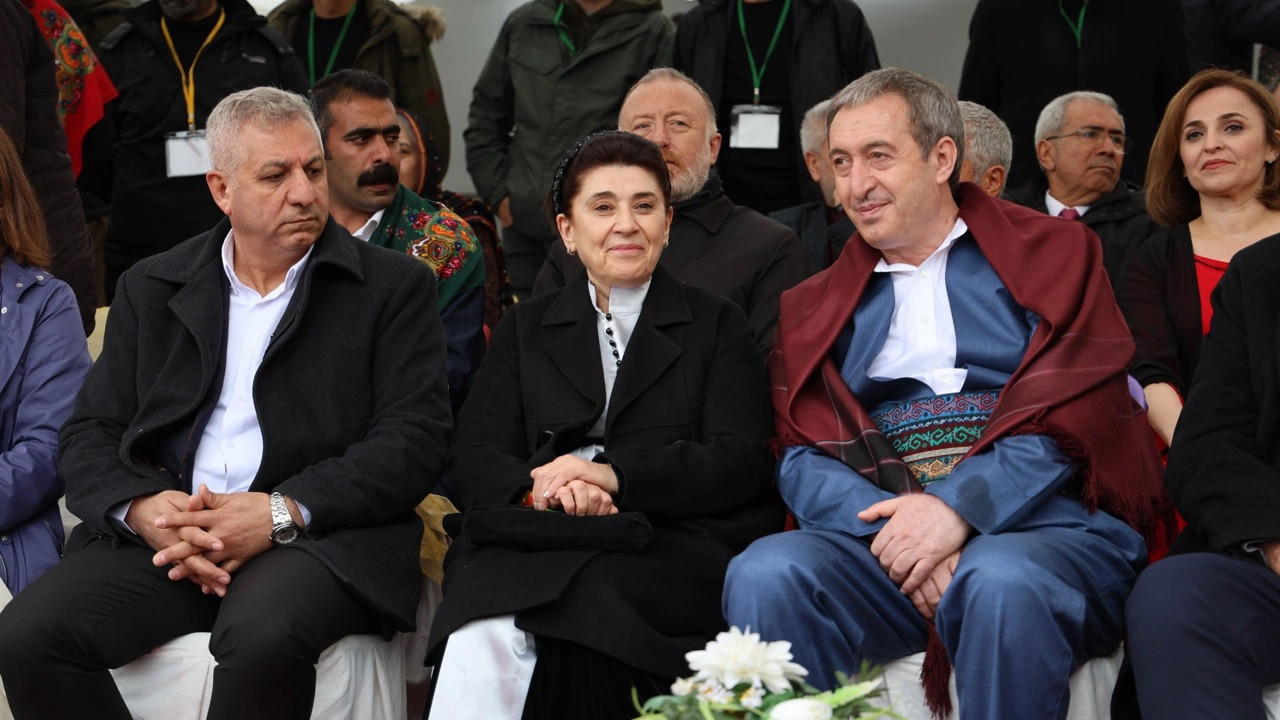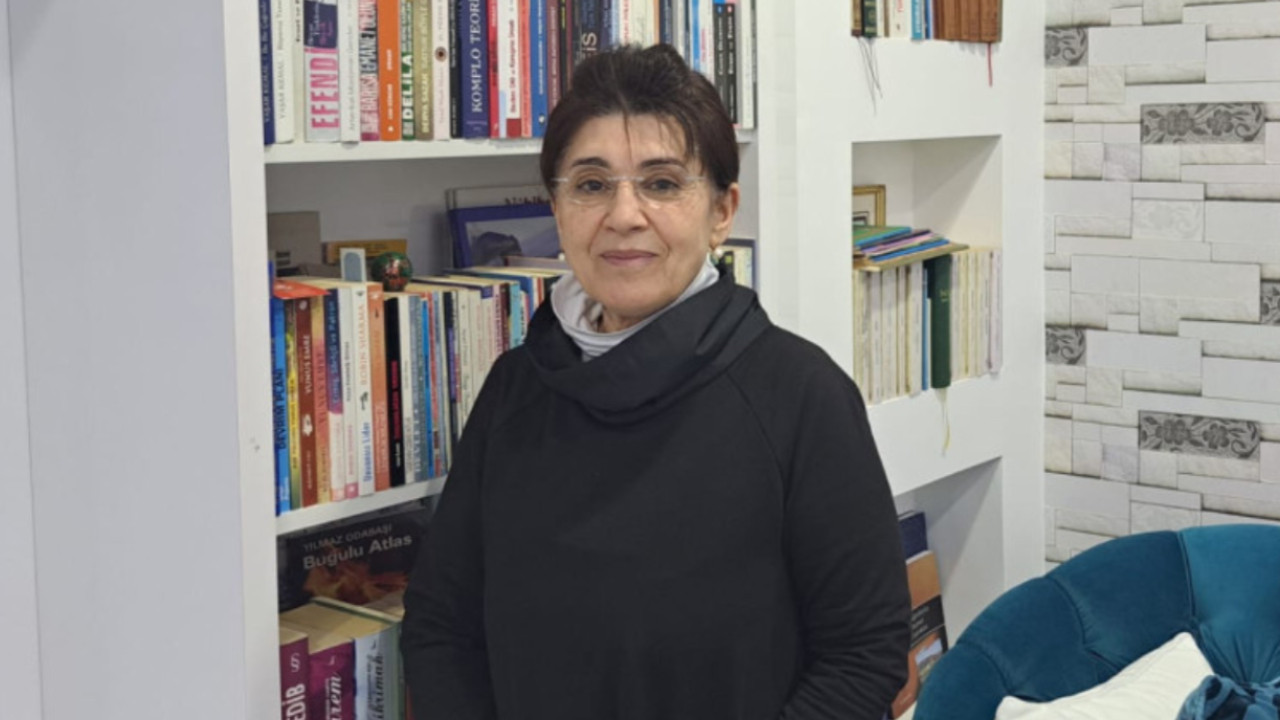Demirtaş gave us morale support
Those who listened to him in the courtroom, including the court panel, did not see a trace of frustration, despair, or surrender. Demirtaş, who says he is an ambitious politician and that one day he will rule the country with the votes of the people, can only cheer up his friends.
Former Peoples' Democratic Party (HDP) co-chair Selahattin Demirtaş, against whom a lawsuit was filed due to his speeches at rallies and live TV broadcasts, attended the hearing held in the Mersin court via online from Edirne Prison where he is currently held.
I had the chance to watch the hearing at the Diyarbakır Courthouse with Demirtaş's wife Başak Demirtaş, his advisor, and lawyers.
The hearing started at 10.00 a.m. local time and ended around 4.30 p.m. The hearing continued without interruption, not counting short breaks of 5-10 minutes. It was the beginning of the judicial vacation and the court committee was perhaps in a hurry to get the verdict concluded as soon as possible for this reason.
But there was also this: Demirtaş told the court panel, “The verdict is in your files” and said that the verdict had already been determined. If the verdict had already been determined, there was no need to take a break considering the humanitarian demands of the lawyers regarding the prison conditions (Demirtaş and the lawyers with him were sweating because of the heat), and no need to waste time to address the deficiencies pointed out by the lawyers.
Demirtaş is an experienced politician and a good lawyer. It is possible to understand from the statements in his defense that he knows very well the government he has been fighting against in every field and condition for years. Although he reminded us of his work between the lines, he was also aware of the obstacles preventing the judiciary from delivering a fair verdict. His speech, attitude, and demeanor showed this. While listening to Demirtaş, this awareness was passed on to everyone who prayed that his path would not lead him to the courts. That's why my hope and my dream that justice will be served have been disappeared.
But this was not only about Demirtaş, of course; the prosecution's accusations and the attitude of the court panel also contributed to this. It was as if a theater was being staged and the script and the director were terrible. Demirtaş was the only actor who tried to do justice to the role assigned to him in this terrible play. But when the script was bad and the director was a theater illiterate, what was left was Demirtaş to watch and listen to.
Demirtaş's defense, on the other hand, lifted the ambiguity over the drama of the recent past and the words of those who caused this drama. Once again, using visuals, he was asking, “What should I say to them?”
I want to record his following remarks: “What is the difference between (Sedat) Peker and (Alaattin) Çakıcı? They are racist fascists, I am Kurdish, that's the difference. But here is the problem: I am also a citizen of this country. I am a politician trying to change the order, the system, and the constitution. I haven't done anything to harm the state of the Republic of Turkey. I haven't sold (this country’s resources) to foreigners. They protect the state and we harm it, is that it? Peker later admitted that he had received assignments from the state to create a climate of fear. I spoke out to stop this, I was sentenced to 55 years.”
If the director insists on staging a script that he knows is terrible, it is nothing more than a vulgar spectacle. What should Demirtaş do?
*
Barış Ünlü's contribution to the literature, the Contract of Turkishness, was mentioned a lot during the hearing. This seemed inevitable. Demirtaş made statements emphasizing that the main reason why he had been imprisoned for years and sentenced to 55 years in prison was that he pursued a political style that violated this contract.
He named mafia leaders such as Alaattin Çakıcı and journalists such as Nedim Şener and Hilal Kaplan who insulted him and said, “Anyone who signs the Contract of Turkishness is acceptable to the state.” The status of these names in the eyes of the state is admirable.
Demirtaş said, “If you say ‘I will not sign this’, then that's it. It doesn't matter even if you are Turkish. I have Turkish friends, I have a Turkish grocer. I speak Turkish, I write in Turkish, I have seven books in Turkish. I have no problem with Turks. I am Kurdish, I don't want to sign the Contract of Turkishness. I want to be a citizen of this country as I am.”
Let me remind that almost all of those who were in politics with Demirtaş have been prosecuted. While Demirtaş was defending himself against the charges against him, he was actually defending his fellow friends, some of whom are still in prison. Kurdish or Turkish, friends who had not adopted or signed the Contract of Turkishness. Their punishment was determined in a school play.
*
“Don't read a book,” the presiding judge told Demirtaş. Demirtaş stood up, approached the camera, and showed the book like a brick. Demirtaş said, “Does it sound like a story to you? I am making a defense.”
Demirtaş was quoting from the book in his hand and showing photographs, explaining the circumstances under which he made the remarks that are the subject of the lawsuit. When the presiding judge intervened, Demirtaş was reading passages from an interview with a special operations officer who had served in Cizre. After the polemic, Demirtaş protested against the presiding judge and ended his defense with a short statement.
His lawyers discussed their request for recusal with Demirtaş, both because their request for a recess in the hearing was not fulfilled and because his defense was interfered with. Demirtaş refused, stating that nothing would change. Who knows, maybe he was bored with the show.
*
When Demirtaş cut his defense short, the presiding judge quickly gave the floor to the lawyers. However, the lawyers attending the hearing from Edirne were exhausted from the heat and poor ventilation. Upon the insistence of the lawyers, the hearing was adjourned for a short break.
During the short break, Demirtaş had a chance to talk to his wife and friends. He joked and stood up to show his belly to prove that he was in good shape. At one point he took a book by Ahmed Arif from the table and read a few lines.
The lawyers were attentive during the defense. He spoke to the lawyers next to him, smiling in between.
At that point I thought about this: Everyone who met Demirtaş in prison says that they received moral support from him, and this is true. Because, those who listened to him in the courtroom, including the court panel, did not see a trace of frustration, despair, or surrender. Demirtaş, who says he is an ambitious politician and that one day he will rule the country with the votes of the people, can only cheer up his friends.


 Kurdish politician Demirtaş gets another jail termPolitics
Kurdish politician Demirtaş gets another jail termPolitics Who says spring is not rebellious?Domestic
Who says spring is not rebellious?Domestic Erdoğan should re-initiate peace process, says veteran Kurdish politician Leyla ZanaPolitics
Erdoğan should re-initiate peace process, says veteran Kurdish politician Leyla ZanaPolitics